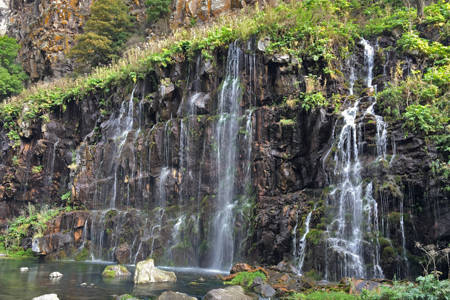Georgia bets on agritourism for scenic Tsalka region

Tsalka, a small town in Georgia’s south, is looking forward to welcoming more tourists to enjoy its unique natural beauty and cultural monuments.
The town has recently undergone an infrastructural upgrade and now is ready to host tourists, offering them proper touristic infrastructure, new routes and trained tourism service providers.
Improvements to tourism infrastructure in Tsalka and training for potential tourism service providers were provided within the project of the Food and Agriculture Organisation (FAO) that was financed by the Austrian Development Agency.
These two organisations also completed work on the Tsalka Tourism Development Strategy and Action Plan (2016-2021) under the ‘Capacity Development of Agriculture of Georgia’ project.
This video shows how the FAO was supporting rural development in Tsalka. Video by the FAO.
Last year the local population, private and nongovernmental sectors identified the areas in need of support and decided that Tsalka’s eye-catching natural landscapes and hospitable farmers were a good foundation for developing agrotourism and ecotourism in the municipality.
Three touristic routes were identified – one for hiking, one for bicycle touring, and one for automobile touring. The routes were laid out to include most of the important cultural and environmental points of interest in Tsalka – the famous Dashbash canyon, 22 cultural heritage sites including churches dating back as early as the 11th century, and guest houses and farms offering products for tourists.

Tourists are visiting Tsalka to enjoy the sights and sounds the town has to offer. Photo by the FAO.
To make excursions more convenient and safe, Global Positioning System (GPS) coordinates were elaborated for each route. These include trails and roads, attractions and facilities, cultural and natural monuments, lakes, waterfalls, canyons, camping sites and sources of drinking water.
Enhancing the capacity of the area’s tourism sector was another dimension of the programme. Some 25 potential tour guides – 12 women and 13 men – from 13 different villages of Tsalka municipality attended three days of intensive training. The course covered rural tourism and guesthouse operation standards, marketing and business plan development and ecotourism principles.
 Tweet
Tweet  Share
Share